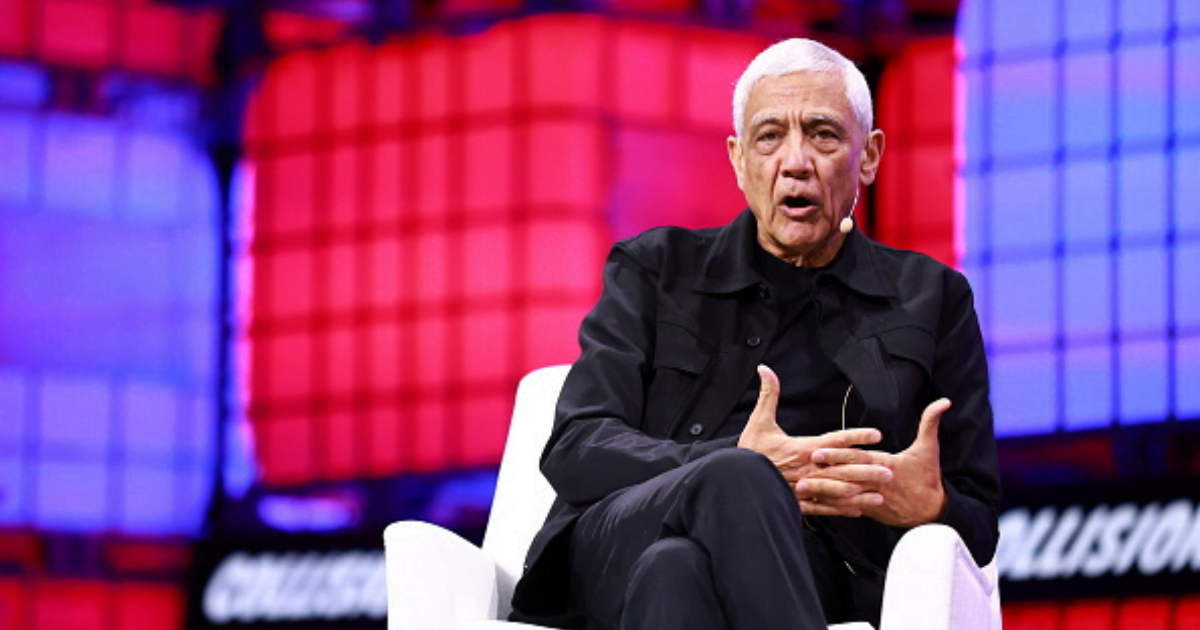Vinod Khosla, an Indian-born American venture capitalist, spoke to an audience of thousands on June 18, 2024 at Collision, an annual Tech Conference hosted in Toronto. The topic of the panel was “The Path to an AI Utopia,” and the panel moderator was Connie Loizos, the editor-in-chief at TechCrunch.
To begin, Khosla shared his thoughts on Apple’s recent announcement to integrate OpenAI technology, a company he has invested in, into their devices.
“It is a validation of the OpenAI technology,” Khosla said, expressing confidence in the product for the next 5-10 years.
Khosla continued to talk about the nature of the contemporary AI startup ecosystem, stating that it is a highly competitive situation, but one of great opportunity.
“Half of these companies will become obsolete, but the other half are doing valuable things,” he explained.
He expressed that despite the difficult climate, that there are so many opportunities for great entrepreneurs to become successful. By selling off their technologies, entrepreneurs and innovators can succeed in a marketplace that is starting to consolidate around 5-7 major industry leaders.
Khosla also emphasized that venture capitalists, including himself, have a crucial role in the evolving AI development industry, as they can help build value for the brand. By actively supporting these companies, they not only advance their own interests but also contribute significantly to the companies’ growth and success.
“Many VCs live off taking fees, not building the company,” he explained, critical of the current venture capitalists in the ecosystem.
“A good investor helps you figure it out.”
Khosla continued by stating that he sees a lot of promise in AI with regards to healthcare in fields such as diagnosis and physiotherapy. He argued that many medical disciplines that require specific kinds of expertise will eventually be replaced by an AI.
Khosla’s most controversial statements came towards the end of the talk, where he criticized the overregulation of the United States and the European Union. In particular, Khosla called out the current head of the Federal Trade Commission, Lina Khan.
“She is not a rational human being,” he said with a smile.
“She does not understand business; she shouldn’t be in that role.”
He further elaborated that while anti-trust does have its benefits, overregulation stifles innovation and is bad economic policy.
“The EU has regulated themselves out of leading in any technology area,” he argued.
Khosla further continued that the United States must persist in its innovation efforts, as it is currently engaged in a technological arms race with China.
“The next large battlefield will be in the mind and fought online,” he explained.
Despite this Khosla remains optimistic about the further evolution of technology referring to himself as a “techno-optimist.”
“Techno-optimism is great, but we need to ensure that there is an equitable distribution of wealth,” he concluded.
“We will have enough abundance to share the wealth.”
Related Articles:
Japanese Startups Excel At Collision 2024 | ShapeWin PR & Digital Marketing Agency Japan
The Door That Cannot Be Closed: Warnings from AI Godfather Geoffrey Hinton
※ Photo By Vaughn Ridley/Getty Images
Editor’s opinion
In the opinion of the editor, Japanese companies should expect divergent and innovative technologies to be bought out by larger companies trying to enter the growing AI market. Innovative Japanese startups should expect attempts by companies to acquire them, whether they are domestic or international. As Khosla said, this is an era of innovation and many companies large and small have been trying to find “the next big thing.”
Additionally, it is more than likely that AI regulation will continue to be a continuing trend among the governments of the world. As Khosla said, this does have its benefits, but overregulation will lead to stifled innovation and a talent drain. Many Europeans in the tech sector are moving to places like the United States and Canada, where there is still more relative freedom for experimentation.
If Khosla is to be believed, Japanese policymakers should look to be more competitive with other countries by deregulating the AI sector, while still implementing defensive policies in the case of acquisitions. This way, they can attract talent from abroad, while defending Japanese-owned businesses from foreign interference.
It is the opinion of the editor that this is how Chinese companies manage to be competitive in the tech industry while being in a command economy. The Chinese government will attract talent from abroad and allow them the freedom to experiment. At the same time, the Chinese government will defend their companies from being acquired by foreigners. Companies such as NetEase and HuaWei hire a significant percentage of their employees from America, Europe and Japan, and others have research and development divisions based in foreign countries.
Related Articles:
Unveiling Innovation: Understanding the Hottest Business Trends at Collision 2024
